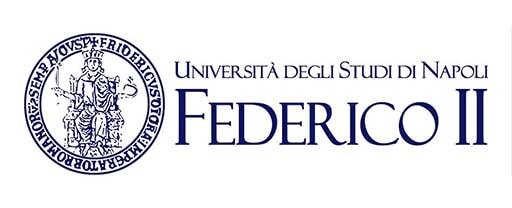
The CardioPath programme aims at providing a systematic understanding and knowledge of the pathophysiologic mechanisms underlying cardiac diseases, and at exposing to cutting-edge therapies in the cardiovascular field.
The training program lasts 3 years and it is accomplished by achieving 180 ECTS (or CFU): 60 ECTS per year. One ECTS corresponds to 25 hours of training activity, distributed as follows: 10 hours for webinars or advanced training courses, 15 hours for study or research of the PhD student. Training activities of CardioPaTh PhD program consists of:
- Advanced training courses
- Webinars
- Research-related activities
- Training and research activities independently chosen by the PhD student and approved by the Academic Council
The training activities of the CardioPaTh PhD programme are focused on 5 main areas of interest:
a) Heart failure;
b) Arrhythmias;
c) Non-invasive diagnostic imaging of cardiac disease;
d) Interventional cardiology;
e) Hypertension.
The training activities are theoretical, methodological and experimental, within Cardiology or across other Medical disciplines aiming at developing the following skills:
a) To be familiar with the research tools (from bench to bed-side) enabling to further investigate mechanisms and therapies of cardiomyopathies;
b) To be able to conceive, design and perform a research project;
c) To develop the necessary skills of synthesis and assessment of possible complex issues related to research or innovation projects and how to overcome them;
d) To be able to further extend the available knowledge in order to improve current diagnostic and therapeutic protocols to cardiomyopathies and to propose innovative approaches.
PhD students are expected to partake cultural initiatives, meetings, congresses, workshops at national and international level. PhD students will be encouraged to publish the results of their research activity as abstracts, manuscripts and publications in peer-reviewed journals. A mandatory training activity of at least 12 months is expected from the PhD students in a non-Italian research or academic Institution.
The 3 years of the PhD Course
The PhD course develops over 3 years, organized as follows:
- During the first year, the PhD student will choose together with his/her supervisor(s) the main research theme that will be developed over the 3 years. Training activities will take place under the forms of webinars and advanced training courses specific for the curriculum chosen, as well as with research-related activities.
- During the second year, the PhD student will consolidate his/her research activity through the execution of research programs preferably in a non-Italian campus. The latter requirement might initiate also during the first year. Training activities will take place under the forms of webinars and advanced training courses specific for the curriculum chosen, as well as with research-related activities.
- During the third year, the PhD student will be encouraged to finalize his/her research through the publication of the relevant findings and will devote adequate time to the preparation of the final thesis. Training activities will take place under the forms of webinars and advanced training courses specific for the curriculum chosen, as well as with research-related activities.
The PhD student is required to achieve 60 ECTS per year as follows:
|
|
Advanced training courses (min-max ECTS) |
Webinars (min-max ECTS) |
Research-related activities (min-max ECTS |
Independent training and research related activities (min-max ECTS) |
ECTS (or CFU) |
|
1st Year |
4-8 |
16-20 |
20-28 |
8-16 |
60 |
|
2nd Year |
4-8 |
16-20 |
20-28 |
8-16 |
60 |
|
3rd Year |
0 |
8-16 |
10-18 |
34-42 |
60 |
Advanced training courses:
- Statistical appraisal basic and advanced of the research findings;
- English;
- Design and management of clinical or translational trials;
- Courses already activated at the Academic Institutions of the CardioPaTh network.
Webinars:
- Given the international nature of CardioPaTh, national and international faculty will deliver web-based seminars (i.e. webinars) on topics of interest for cardiovascular research.
- PhD students are required to dedicate adequate time to the preparation of each webinar by critically appraising the available literature on the topic.
- Webinars are facilitated in order to encourage the development by the PhD student of a critical thinking and to stimulate debate and interaction with the faculty.
- List of webinars is on cardiopath.eu/seminars
Research-related activities:
- These are activities related to research topics of interest under the form of participation as attendee to workshops, meetings, and congresses.
- Involvement in collaborative research projects aimed at the scientific growth of the PhD student with research groups and laboratories outside the CardioPaTh network.
- PhD students might also be involved in limited teaching integrated activities during Master Degrees.
- Research activities executed in the non-Italian campus
Independent training and research related activities:
- These include all the research activities approved by the Academic Council independently performed by the PhD students related to the preparation of the final thesis.
- PhD students will be encouraged to present the results of his/her research at meetings under the form of abstract, oral presentations.
- Publications will be considered depending on the position in the authorship: higher value will be give to first and last authorship, or address for correspondence. Co-authorship will be also considered.

